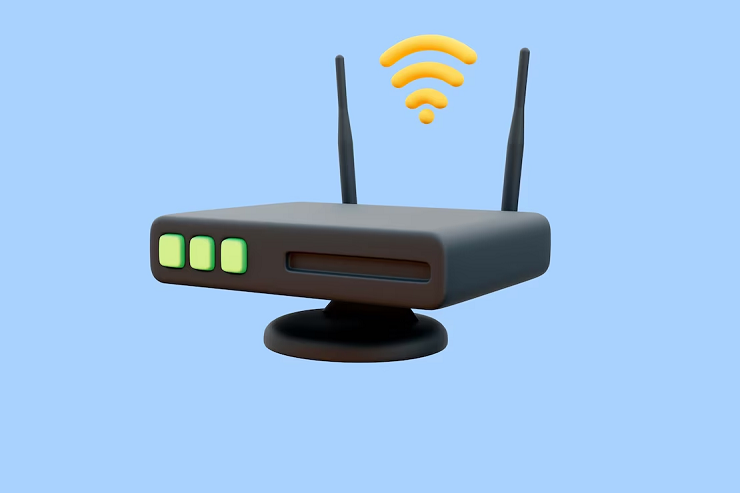

A strong and reliable Wi-Fi signal is essential for smooth internet browsing, streaming, and online activities in today’s connected world. However, there are times when our Wi-Fi signal may only reach some corners of our homes or offices, causing frustrating dead zones. Luckily, there are solutions available to extend Wi-Fi coverage: Wi-Fi extenders and Wi-Fi repeaters. This blog post will explore the differences between these two devices and help you determine the best fit for your needs.
Wi-Fi extenders, also known as Wi-Fi boosters or range extenders, are designed to amplify and extend the existing Wi-Fi signal. They work by receiving the Wi-Fi signal from your router and rebroadcasting it to reach areas with weaker coverage. Wi-Fi extenders bridge your router and devices, ensuring a stronger and more consistent connection throughout your home or office.
Wi-Fi extenders are relatively easy to set up and configure. Most models offer a user-friendly interface that guides you through the installation process.
Wi-Fi extenders are particularly effective in extending the Wi-Fi range, making them a perfect choice for large homes or spaces with multiple floors.
By amplifying the original Wi-Fi signal, Wi-Fi extenders provide a stronger connection to devices in areas with weak signal strength.

Since Wi-Fi extenders rebroadcast the existing signal, the signal quality can be lost, resulting in slightly slower speeds than the direct router connection.
In some cases, Wi-Fi extenders create a separate network name, which means you may need to switch between networks as you move around your space manually.
Wi-Fi repeaters, also known as Wi-Fi range expanders or wireless repeaters, receive the existing Wi-Fi signal and rebroadcast it at the same frequency. Like Wi-Fi extenders, they help eliminate dead zones and extend the Wi-Fi coverage in your home or office.
Wi-Fi repeaters effectively increase the range of your existing Wi-Fi network, providing coverage to previously unreachable areas.
Wi-Fi repeaters offer a more robust connection by amplifying and rebroadcasting the signal, ensuring a stable Wi-Fi experience throughout your space.
Unlike some Wi-Fi extenders, Wi-Fi repeaters typically operate under the same network name (SSID) as your router, allowing seamless device roaming without manually switching networks.

Since Wi-Fi repeaters operate at the same frequency as your router, they share the available bandwidth, potentially leading to slower speeds, especially if multiple devices are connected simultaneously.
Wi-Fi repeaters need to be strategically placed within the range of your existing Wi-Fi signal for optimal performance. Finding the right location may require some trial and error.
To determine whether a Wi-Fi extender or a Wi-Fi repeater is the best fit for your home, consider the following factors:
Assess the size and layout of your home. If you need to extend the Wi-Fi signal to a large area or multiple rooms, a Wi-Fi extender is a more suitable choice. A Wi-Fi repeater can be an effective and cost-efficient solution for smaller spaces or specific dead zones.
A Wi-Fi extender is a better option if maintaining high network speed is crucial for online activities. Although repeaters may slightly reduce network speed compared to extenders, the speed difference is usually minimal in newer models.
Consider where you have access to power outlets and the ability to position the device. Wi-Fi extenders can be placed anywhere within range, while Wi-Fi repeaters need to be set within the range of the main router for optimal performance.
Wi-Fi extenders are the way to go if you prefer a seamless transition between the main router and the extended network. They maintain the same network name, allowing devices to connect to the strongest signal automatically. On the other hand, Wi-Fi repeaters are a viable option if you don’t mind switching between networks when moving between the main router and the repeater area.

Choosing between a Wi-Fi extender and a Wi-Fi repeater depends on your specific needs and the layout of your home or office. A Wi-Fi extender may be better if you require extended coverage in a larger space, such as a multi-story home. On the other hand, if you need to eliminate dead zones in a smaller area and prefer seamless roaming, a Wi-Fi repeater may be the ideal choice.
Ultimately, the most critical factor is to ensure compatibility and reliability with your existing router. You can upgrade your Wi-Fi router for better experience. Researching different models, reading customer reviews, and consulting with a knowledgeable sales representative can help you make an informed decision.
Wi-Fi extenders and Wi-Fi repeaters offer practical solutions to extend Wi-Fi coverage in your home or office. While Wi-Fi extenders provide excellent coverage and a simple setup, Wi-Fi repeaters offer seamless roaming and extended range. The choice between the two depends on the size of the area you need to cover and your specific requirements.
Remember to consider factors such as signal degradation, separate network names, bandwidth sharing, and optimal placement when making your decision. Prioritize compatibility and reliability to ensure a smooth and reliable Wi-Fi experience.
Whether you opt for a Wi-Fi extender or a Wi-Fi repeater, both can significantly improve your Wi-Fi coverage and eliminate frustrating dead zones. Embrace the power of technology and enjoy a solid and reliable Wi-Fi signal throughout your space. Stay connected, stream seamlessly, and make the most of the digital world!

I’m a Nerd and very proud of it! I love to write about anything Tech related. Subscribe to our blog for helpful tips, tricks & news.




